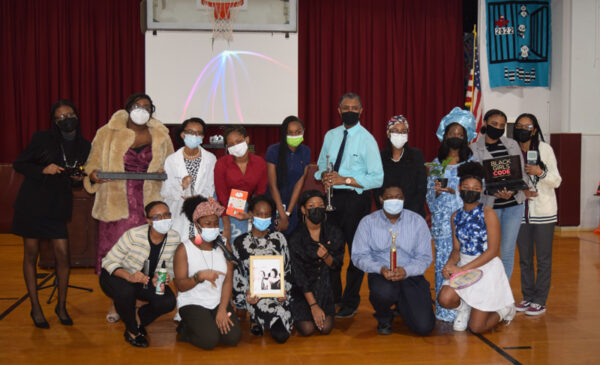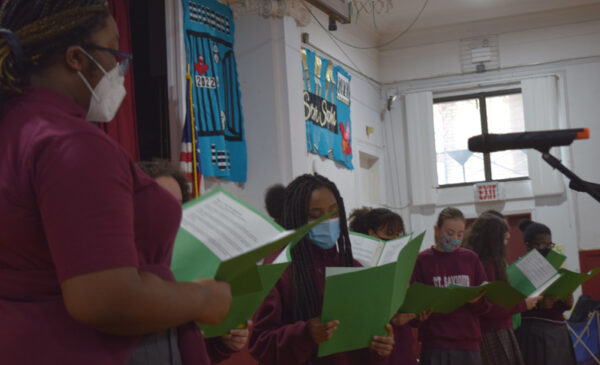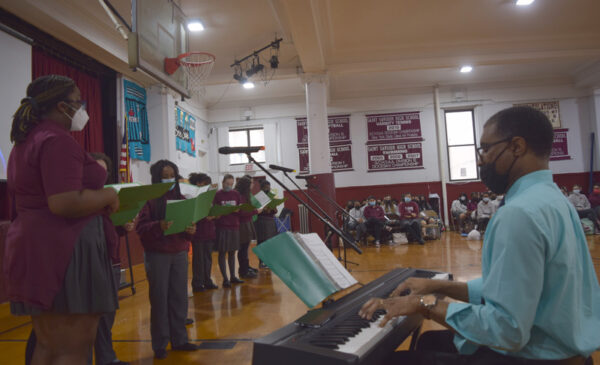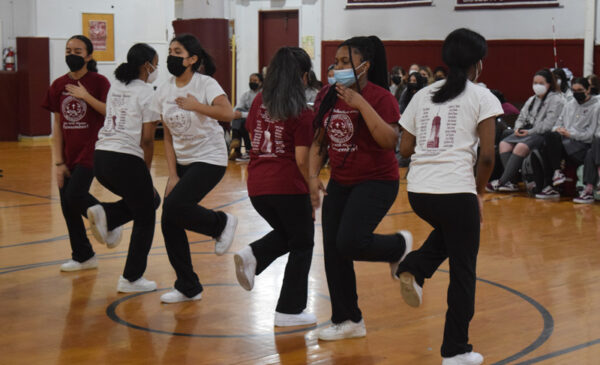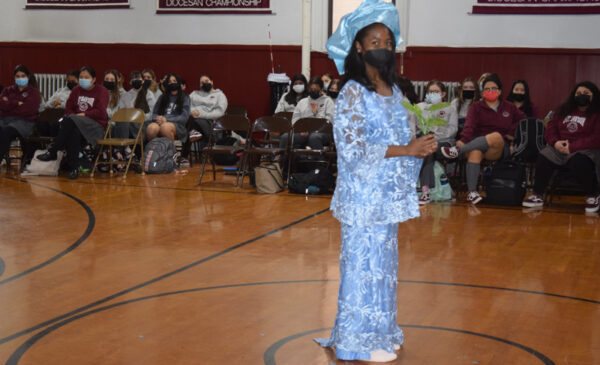PARK SLOPE — In 1976, 200 years after the United States of America declared independence from Great Britain, then-President Gerald Ford officially recognized February as Black History Month (BHM) across the U.S.
The fact that such a milestone in African American history happened only 50 years ago wasn’t lost on the young women who planned, practiced, and then performed at St. Saviour High School’s annual BHM assembly on Feb. 17.
“To me it’s one of the most important days because it shows the history of black people and all the things they’ve been through,” said junior and St. Saviour gospel choir member Alicia Teesdale. “For the choir, it was important because we wanted to [perform] the Black National Anthem to show how after all the segregation and inequality, [blacks in America] got through it.”
Members of the choir sang two songs for the school members gathered in the gym that day. One, titled “Thanks Be to God,” incorporated words once spoken by iconic civil rights leader Martin Luther King Jr.
The second was “Lift Every Voice and Sing,” a hymn commonly sung within black communities and recognized in 1917 as the “Black National Anthem’’ by the NAACP.
A guiding force behind the school’s BHM observance were members of the Afro Caribbean Association who, in addition to singing in the gospel choir, also produced a culturally-based Step Show rhythmic dance performance and a fashion show.
The fashion show, however, wasn’t a high-fashion couture, walking-the-runway event. Instead, it featured students, in-costume, showcasing historical black figures and civil rights activists such as Mamie Till, the mother of Emmett Till, who was thrust into African American history in the aftermath of the brutal lynching of her son; groundbreaking gospel singer Mahalia Jackson; poet and civil rights activist Maya Angelou; Oscar-winning actor Denzel Washington and jazz icon Miles Davis.
St. Saviour senior Madison Garrett helped found the Afro Caribbean Association last year after realizing that she and her fellow classmates of color needed a “safe space to discuss the issues” that they felt were directly affecting them.
“We saw the killings of unarmed black men,” Garrett explained, “and we just needed a place to talk about our mental health and to release our feelings.”
With her graduation approaching, Garrett is confident that even when she leaves, the club she started will be in good hands with a new crop of leaders.

